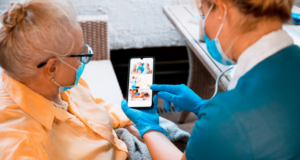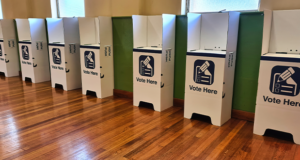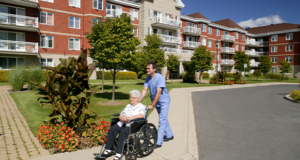Australian Capital Territory officials have been tasked to rewrite parts of the voluntary assisted dying (VAD) bill after an inquiry found phrases to be "vague". A parliamentary inquiry last week found that a person's "last stages of life" and "advanced" ...
More »Legal Corner
Voluntary assisted dying is different to suicide. But federal laws conflate them and restrict access to telehealth
Michaela Estelle Okninski, University of Adelaide; Marc Trabsky, La Trobe University, and Neera Bhatia, Deakin University Voluntary assisted dying is now lawful in every Australian state and will soon begin in the Australian Capital Territory. However, it’s illegal to discuss ...
More »VAD: Federal Court rules telehealth illegal
Doctors who give patients information about euthanasia over the phone could face criminal charges, the Federal Court ruled. Federal Court Justice Wendy Abraham on Thursday ruled the term "suicide" as used in the Commonwealth Criminal Code Act 1995 applies to ...
More »Dementia and voting in the Voice referendum
Dementia Australia (DA) is asking the families, carers and doctors of those living with dementia to start the conversation about voting in the upcoming referendum. DA chief Maree McCabe AM said each family should make a decision depending on their ...
More »Victorian aged care homes most likely to be victims of theft
According to recent data, theft was the number one crime in nursing homes. In the year to March 2023, aged-care facilities saw more thefts than any other crimes – with nursing homes in Monash being targeted the most. Recent data ...
More »Police wait on crucial report that will reveal how 95-year-old Clare Nowland died
Police are waiting on a crucial report that will reveal the cause of death for Clare Nowland, a 95-year-old woman who died days after she was allegedly tasered by a police officer. Senior constable Kristian James White had previously appeared ...
More »OPAN pushes for law to stop abuse in aged care: Q&A
The nation's top advocacy group for older people has called for new laws to give aged care residents more power over the care they receive. The Older Persons Advocacy Network (OPAN) released a position paper last week highlighting how substituted decision-making can ...
More »Check twice, click once: The legal implications of incorrectly sending patient information via email
Nurses are required to maintain patient confidentially due to their legal, moral, ethical, employment and professional duties as they are trusted with a patient’s most intimate and personal information. This trust is often a challenge to maintain when working in ...
More »COVID-19: Can a nurse legally refuse to work?
Nurses are presently working amid the COVID-19 pandemic. But can a nurse legally refuse to work? Most nurses are employed pursuant to a contract of employment. This is a legally binding arrangement between the employer and nurse. It sets out ...
More »Unfairly fingered: Is your employer allowed to collect your biometric data?
Increasingly, healthcare employers are using biometric and electronic databases and surveillance cameras to monitor their employees, who need to be vigilant about protecting their rights and personal information. This case dealt with an unfair dismissal claim in a non-healthcare workplace, ...
More » Aged Care Insite Australia's number one aged care news source
Aged Care Insite Australia's number one aged care news source









